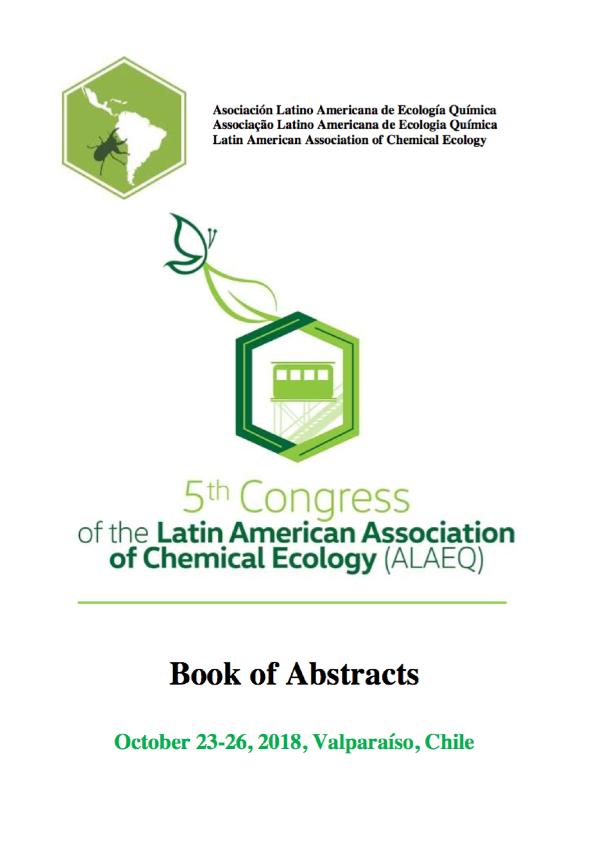Evento
Maize specialist, Dalbulus maidis, induces the release of an allomone in a maize landrace, but not in maize hybrids
Coll Araoz, Maria Victoria ; Fernandez, Patricia Carina
; Fernandez, Patricia Carina ; Luft Albarracin, Erica Beatriz
; Luft Albarracin, Erica Beatriz ; Virla, Eduardo Gabriel
; Virla, Eduardo Gabriel
 ; Fernandez, Patricia Carina
; Fernandez, Patricia Carina ; Luft Albarracin, Erica Beatriz
; Luft Albarracin, Erica Beatriz ; Virla, Eduardo Gabriel
; Virla, Eduardo Gabriel
Tipo del evento:
Congreso
Nombre del evento:
5th Congress of the Latin American Association of Chemical Ecology
Fecha del evento:
23/10/2018
Institución Organizadora:
Asociación Latinoamericana de Ecología Química;
Título del Libro:
Book of Abstracts: 5th Congress of the Latin American Association of Chemical Ecology
Editorial:
Universidad Pontificia de Valparaíso
Idioma:
Inglés
Clasificación temática:
Resumen
Plant defenses against herbivores are predicted to change with domestication and breeding in crop plants. A decisive factor for the susceptibility or resistance of host plants is their ability to recognize a particular herbivore and mount rapid defenses, producing allomones that dissuade future individuals of the pest from feeding.In this study, we compared the attractiveness of a suite of three maize germplasms representing two domestication and breeding transitions from landrace to modern hybrid cultivar, on a specialist herbivore, the corn leafhopper Dalbulus maidis (DeLong) (Hemiptera: Cicadellidae).Two PIONNER maize hybrids, P1780YR (temperate) and P30B39HR (tropical) and a landrace known as sweet white maize (SWM) were used. Treatments consisted of Non-induced healthy maize plants and plants Induced by the attack of 6 D. maidis females (for 12 hs before the assays). Olfactory dual choice tests were performed between Non-induced and Induced plants of each germplasm, using a stationary phase olfactometer, with the odor sources placed in opposite directions (N=40). Statistical differences where determined with Chi-square goodness-of- fit test (χ2). Plant volatiles were collected and analyzed according to Braccini et al. (2015). Dalbulus maidis preferred Non-induced SWM over Induced SWM (χ2 = 10.465, P = 0.001), but did not discriminate between Induced temperate maize vs. Non-induced (χ2 = 0.615, P = 0.433), or Induced tropical maize vs. Non-induced (χ2 = 0.065, P = 0.799). Induced SWM produced an indole derivative and homoterpenes which were not produced by Induced temperate and tropical hybrids. At least one of these compounds could be an allomone, responsible for repelling D. maidis, that has been lost in the modern hybrids.
Palabras clave:
Olfactometry
,
Allomone
,
Domestication
,
Specialist herbivore
Archivos asociados
Licencia
Identificadores
Colecciones
Eventos(PROIMI)
Eventos de PLANTA PILOTO DE PROC.IND.MICROBIOLOGICOS (I)
Eventos de PLANTA PILOTO DE PROC.IND.MICROBIOLOGICOS (I)
Citación
Maize specialist, Dalbulus maidis, induces the release of an allomone in a maize landrace, but not in maize hybrids; 5th Congress of the Latin American Association of Chemical Ecology; Valparaíso; Argentina; 2018; 1-2
Compartir



